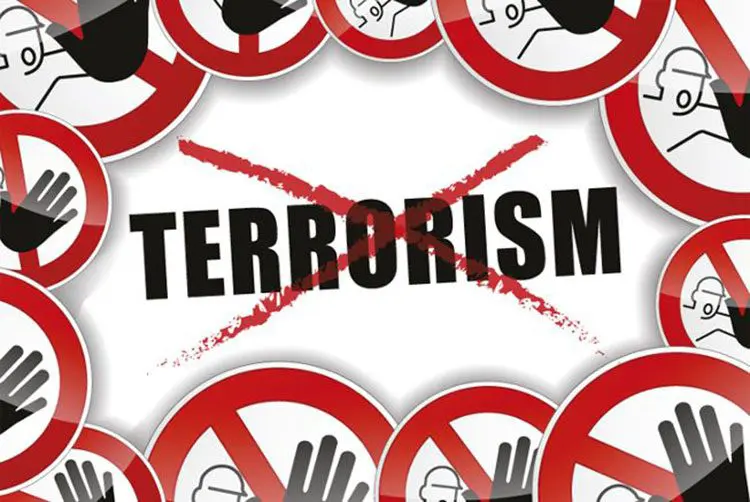On May 21, Anti Terrorism Day is observed all over India to spread the message of peace and humanity… The day is aimed towards standing against the cruel act of terrorism of any kind and the devastating circumstances that it brings about. Many around the country get influenced by people whose sole aim in life is to spread violence in the name of their cause. This day falls on May 21. This date is quite significant in Indian history but for quite a tragic reason. In 1991, former prime minister Rajiv Gandhi was assassinated at Sriperumbudur while he was on an election campaign trip in order to return back to power. This year, it marks the 30th death anniversary.
Thanks to the activism of the Christian churches on the issues of terrorism, anti-terrorism and human rights during the last 15 years, the UN General Assembly, 73rd plenary meeting on 19 December 2017, in its resolution 72/165 (2017), established 21 August as the International Day of Remembrance of and Tribute to the Victims of Terrorism in order to honor and support the victims and survivors of terrorism and to promote and protect the full enjoyment of their human rights and fundamental freedoms.
Violence against unarmed and innocent civilians for political or religious purposes by state or non-state perpetrators cannot in any way be justified in legal, theological or ethical terms. The will of the UN member states to agree in the most expeditious way on a clear definition of the term terrorism was expressed. The unanimous opinion of the churches of the WCC members was expressed that terrorist acts and threats, as well as the organizational support for terror, should be subject to criminal law. Anti-terrorism measures must be demilitarized and the concept of a “war on terror” must be firmly opposed to the Christian churches globally.
The World Council of Churches (WCC) unequivocally proclaims the role of churches in seeking and realizing world peace. The highest inter-Christian forum to raise the voice of Christians from the 347 member churches of the ecumenical movement in condemning terrorism and emphasizing the rights and freedoms of everyone was the Ninth Assembly of the World Council of Churches (WCC), held in Porto Alegre – Brazil between 14-23 February 2006. The 9th Assembly of the WCC supports the stated task of the Decade for the Elimination of Violence, namely, “to stop any theological justification of violence and to proclaim a new spirituality of reconciliation and active non-violence.
The Assembly, in its entirety, voiced the need to support the churches in their response by fulfilling a spiritual and pastoral duty to assist those who are trapped in fear.
Interfaith initiatives as a means of mobilizing non-violent alternative responses to terrorism have been strongly encouraged. Rejection of any attempt to justify an act of terror as a possible response to political or social problems. The role of churches in conflict prevention is responsible, serving as an early warning system and, on the other hand, building a culture of peace around life.
But let us return for a moment to the original idea of ecumenism. And let us remember that it aims to establish a dialogue between all Christians in the wide and diverse world. In addition, to spread the gospel word successfully, to eliminate enmity between Christians of different denominations, to strengthen peace and understanding, to overcome disagreements, to prevail in mutual trust. In this form, ecumenism (from the Greek “ecumenical” – universe, ie universal Christianity) and its beginning can be considered the year 1948, when the WCC was founded in Amsterdam.
When the ecumenical movement began its initial period after 1948, it was something new. The world is also different – restructured, with new orders, facing a new era. In terms of religion, changes are also forthcoming, mostly related to the development of communications, the technological boom, urbanization, the emergence of the subculture. And also with the post-war polarization of the world – the rise of the Iron Curtain, the Cold War, the creation of new states. During this period, almost all Orthodox countries were under religious and political pressure from various regimes. In the West, on the contrary, the notion of freedom – including religious ¬ reaches extremes.
Here is the road paragraph from the 9th WCC Assembly document “Opinion on Terrorism, Anti-Terrorism and Human Rights”, adopted under No. PIC 02-4:
1.” The violence of terrorism in all its forms is abnormal for anyone who believes that human life is a gift of God and therefore priceless. Any attempt to impose indiscriminate death and pain on other people should be absolutely condemned. The answer we owe to terrorism should not be with its characteristics, because such an answer would lead to more violence and more terror. Instead, a concerted effort by all peoples is needed to prevent any attempt to justify such acts. “







